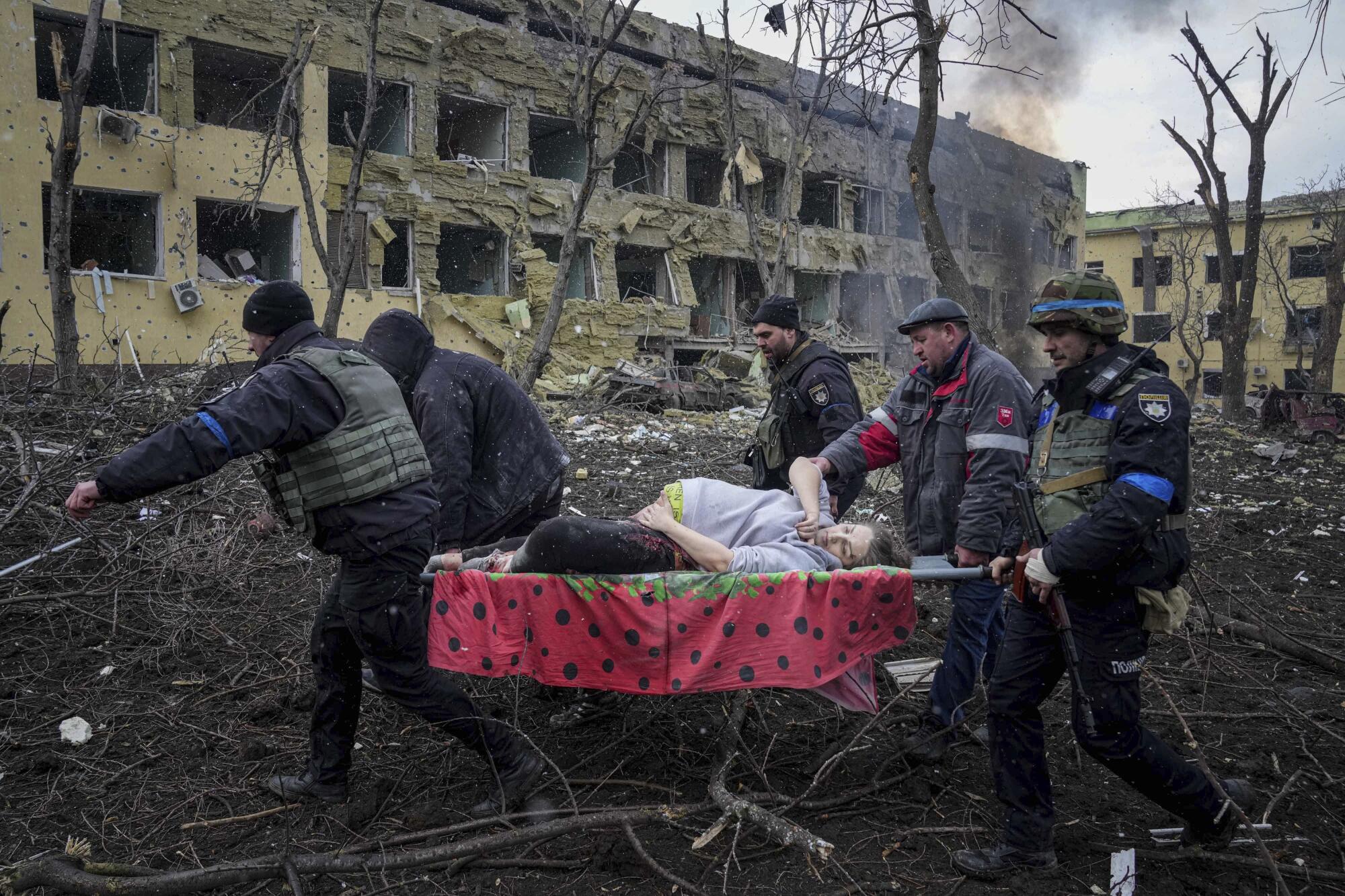
- Share via
BERLIN — Natalija Yefimkina gathers the voices of war.
Like that of the young Russian soldier telling his mother about the torture he witnessed when his comrades cut the fingers off Ukrainian fighters: “Mom, I think I’m going crazy, we’re killing people.” He added, “I wanted to be a good person.”
“That’s OK, that’s OK,” his mother replied. “Those Ukrainians are not human.”
Part of a phone call intercepted by Ukrainian secret service, the conversation is one of many recordings Yefimkina, a Ukrainian filmmaker, has cataloged since Russia invaded her native land in February. She has collected hundreds of hours of the voices of families, strangers and friends. Many are Ukrainian, others Russian. Through timbres, accents and tears, she has listened to the devastation and surrealness of a conflict that has disrupted millions of lives, created mass graves and seen Russian artillery batter town after town in eastern Ukraine.
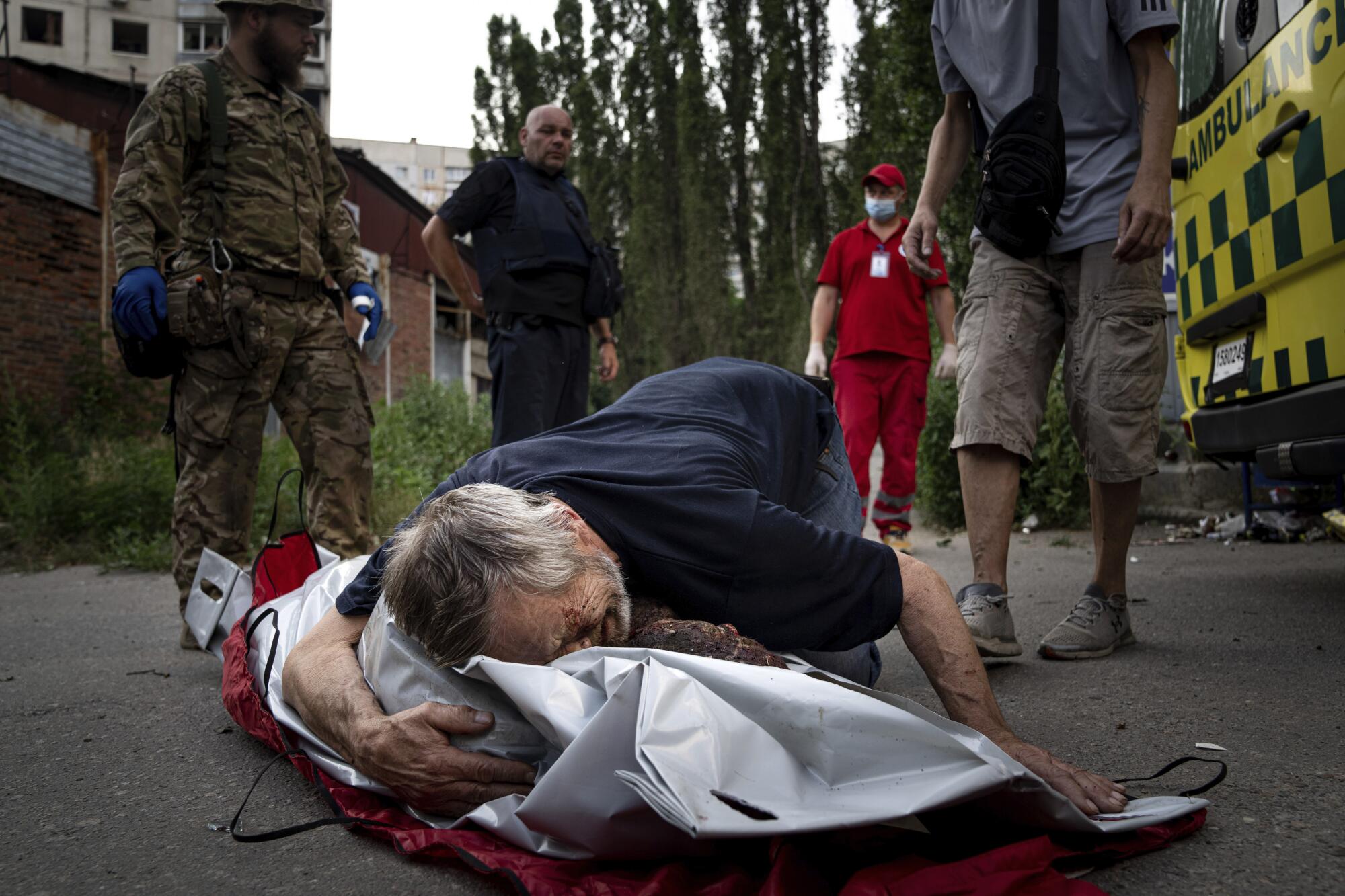
“I don’t even have hatred for those people [Russians],” said Yefimkina, 39, who lives in Berlin and translates the conversations into German. “I understand that everyone has something evil. And then there are regimes that bring out the worst.” She adds of the Russian soldier: “Maybe in another country, in another situation, he would have always remained good.”
Another voice that has troubled her was that of Serhij Semen, a young Ukrainian factory worker from the capital of Kyiv. “When war broke out,” he said in an audio recording, he asked his girlfriend to marry him. She accepted. But wedding plans were delayed as he spent his days — like many young men in the capital at the time — making Molotov cocktails to hurl against Russian forces.
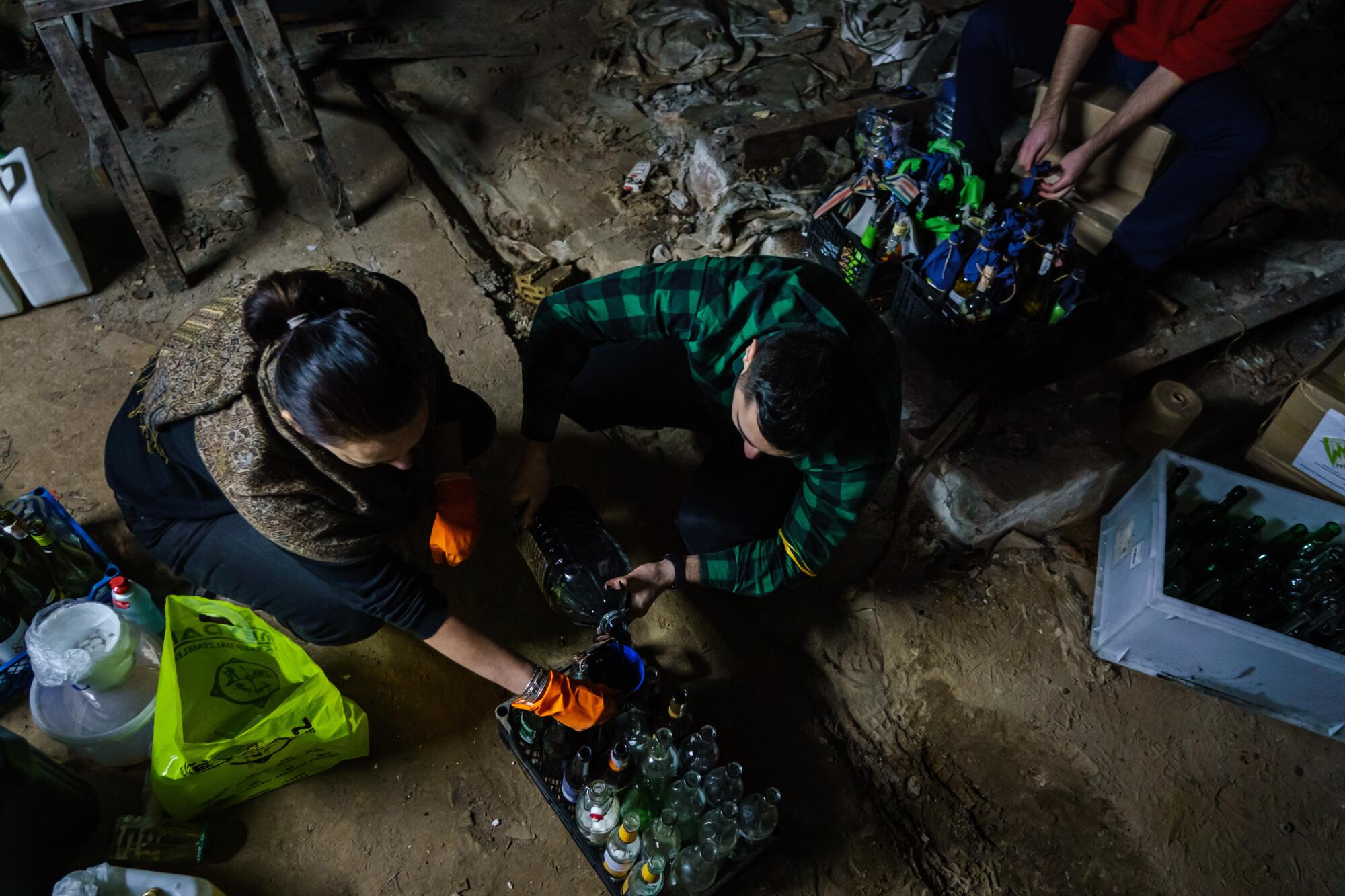
“I wanted to make this a maximum hell for the occupiers,” Semen told Yefimkina. “I didn’t think about escape, where shall we escape to? I don’t want to die for Ukraine. I want to live for it.”
A few weeks after the interview, Semen was killed in an attack. His body has not been recovered.
The war grinds on as the Russians advance in the east. Yefimkina listens to those on both sides, making no judgments, while capturing the raw sentiments of lives entangled in bloodshed that has redrawn the boundaries of Europe and unsettled the world. Her work is a combination of art, forensics and oral history culminating — in an age of podcasts — in a testament to what has been taken and what has been lost.
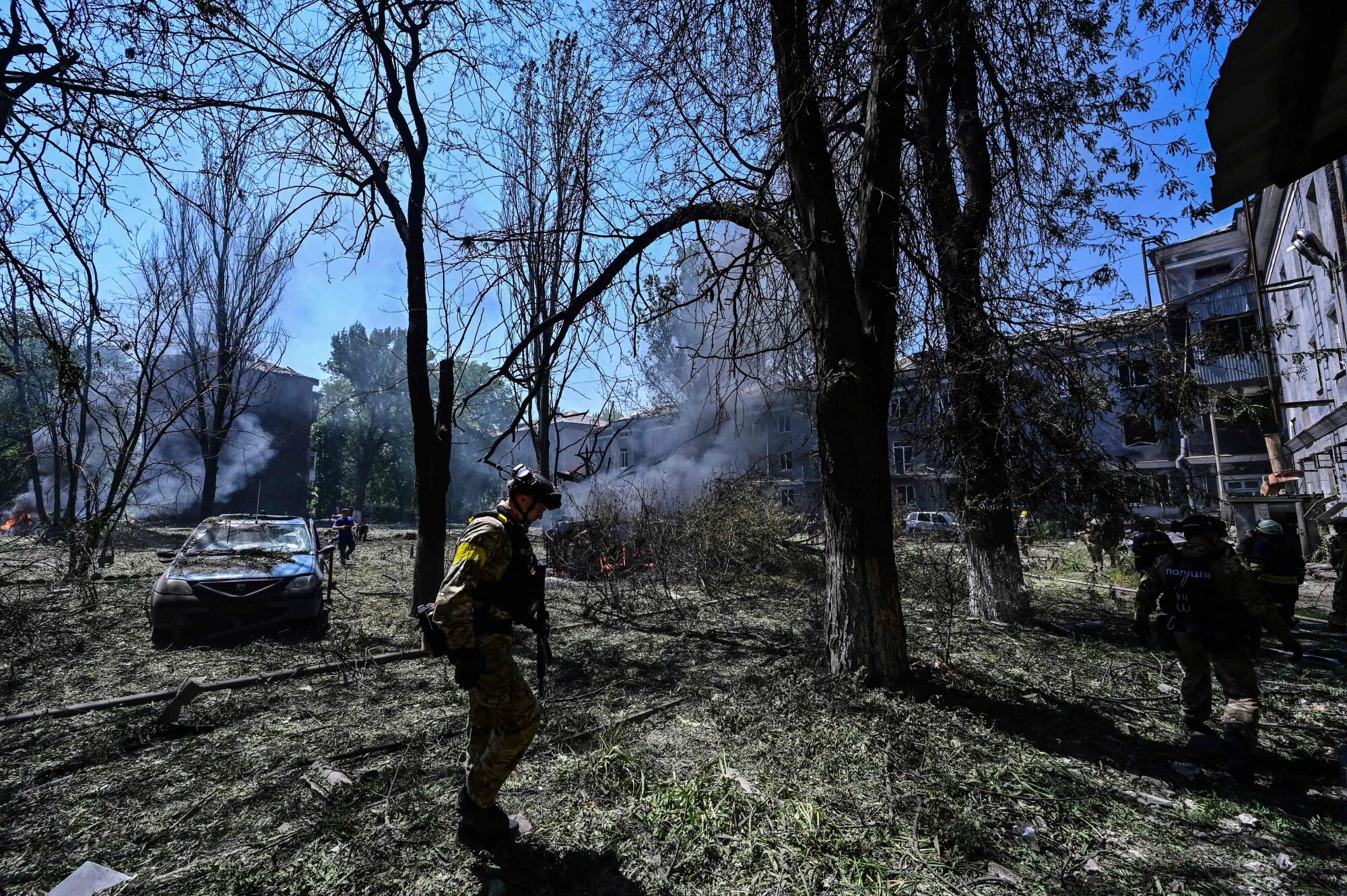
A tall, slender woman with long brown hair and a deep voice, Yefimkina is accustomed to exploring human stories. She spent months on her most recent film, “Garage People,” intimately documenting the lives of Russians on the Kola Peninsula, where many escape the misery of prefabricated high-rise existence by retreating to the freedom they find in their garages. She followed them for so long that they openly spoke and behaved as if the camera had been forgotten about.
Her focus these days is making phone calls from her Berlin studio to record the syntax of war. Stories, diary entries and audio tracks are translated and published on the website of Berlin’s main broadcaster. The questions to her subjects are straightforward and specific: Name. Age. What are you doing right now? How did you experience the beginning of the war? What do you feel? What are your worries?
“People keep on asking me: How come the accounts are so authentic, so intense? What a question,” said Yefimkina, who left Ukraine as a child when her mother was hired by a German university. “I am listening. I am genuinely interested in people. I simply listen to what they have to say.”
One of those she talks to is Anton, whom she met while making “Garage People.” He lives in northwest Russia and recently told her about a conversation he had in a doctor’s waiting room. None of the other patients, he said, believed that Russian President Vladimir Putin, who has steeped his nation in state propaganda and cracked down on antiwar protests, sent warplanes to attack a neighboring country.
“’Which Russian planes?’ they asked me. ‘Others are flying there, not Russians,’” said Anton, whose last name is not given for fear of retribution. “You will never convince them. For them, they are some mystical planes. They believe in Putin. These women go to the Orthodox Church. And the regime is like another kind of church set up for them.”
Anton’s 75-year-old Aunt Ira, who lives in Ukraine, sees it differently: “Imagine, the other day Ira said she would give her life for Putin to croak [die],” Anton said. “She wouldn’t hesitate for a moment. And this is the same Aunt Ira who loved Russia only 20 years ago.” He added: “There is nothing left but hatred.”
“What is bad is that they not only kill, but also change people. They [the Russians] came to ‘denazify’ them. In the end they produce people who hate them. What an idiot you have to be to make so many enemies.”
Anton told Yefimkina he felt helpless. “I also have this hatred that torments me,” he said. “It runs so deep, I don’t know what to do with it. The first week I cried a few times. Nine people I would call my friends and they all experience it like this. When we meet to discuss it, we feel like traitors.”
The conversation ended.
Others begin or pick up where they left off. Yefimkina has long been worried about Bohdan, a soldier in the Ukrainian army she knows well. She reached him on the phone one day in a rare moment of calm. He was in the Azot plant, the last Ukrainian holdout in the embattled city of Severodonetsk. The plant was constantly bombarded by Russian forces.
“They simply cover us with thousands of tons of metal,” said Bohdan, who like other soldiers requested his last name not be given for security reasons. “They pursue scorched earth tactics. They bomb at random and they seem to have billions of these projectiles.”
Bohdan — who was not drafted for health reasons — volunteered for service in the army after the war broke out. None of his friends were fighting. They stayed at home in Kyiv or in one of the nearby villages. But Bohdan said he needed to join the battle.
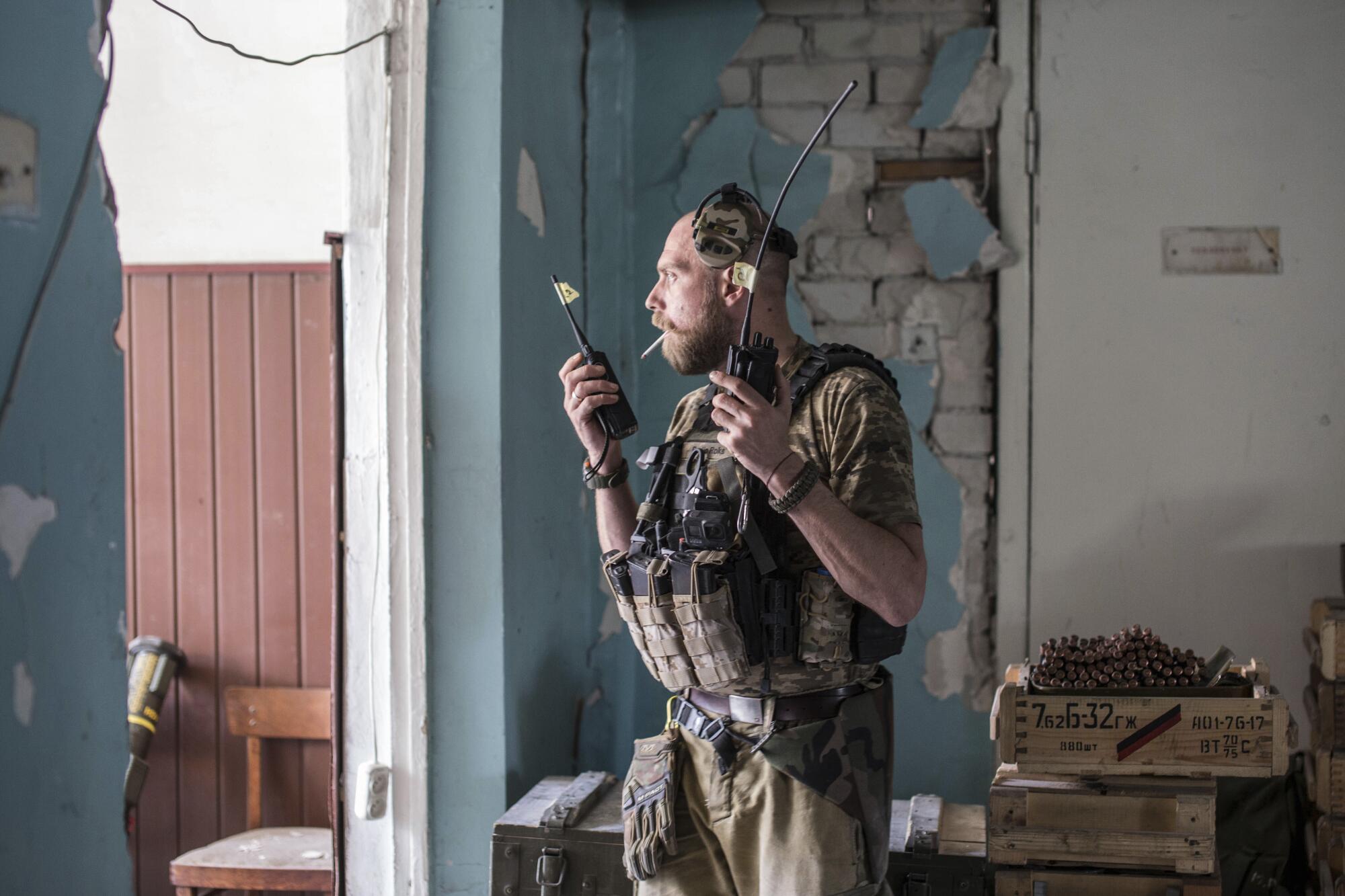
“Who if not us?” he told Yefimkina during the call via Telegram. Such calls were often interrupted when a Russian Orlan-10 drone was spotted. “We have instructions to shut down Starlink as soon as a bird is in the air because they detect our Wi-Fi network — and then they are sending missiles.”
Yefimkina heard a crackling noise that sounded like laughter. She couldn’t be sure, given all the fighting around the plant.
Bohdan did not want to talk at first. “Nobody understands what is going on here,” he said. “And nobody really cares.” But Yefimkina is his best friend’s cousin. He remembered when they were moving around Kyiv, smoking pot at one of the underpasses. “My friends are all in the cafe. They go dancing and me, I can’t even wash myself.”
He seemed to be in a different universe. Talking to Yefimkina was like therapy — or at least a relief. For her, it was as well: “Logging all the conversations helps,” she said. “Helps me to process all this.”
She was struck, she said, by how far away she is from the front lines, living in a European capital where the war barely registers even on a continent that saw two world wars last century. The Germans have “lived in prosperity and safety for so long that they can’t get emotionally involved in the complete loss of everything,” she said. “My friends here tell me what kind of kitchen they want to buy or where they want to go for dinner. For me this is very difficult to deal with.”
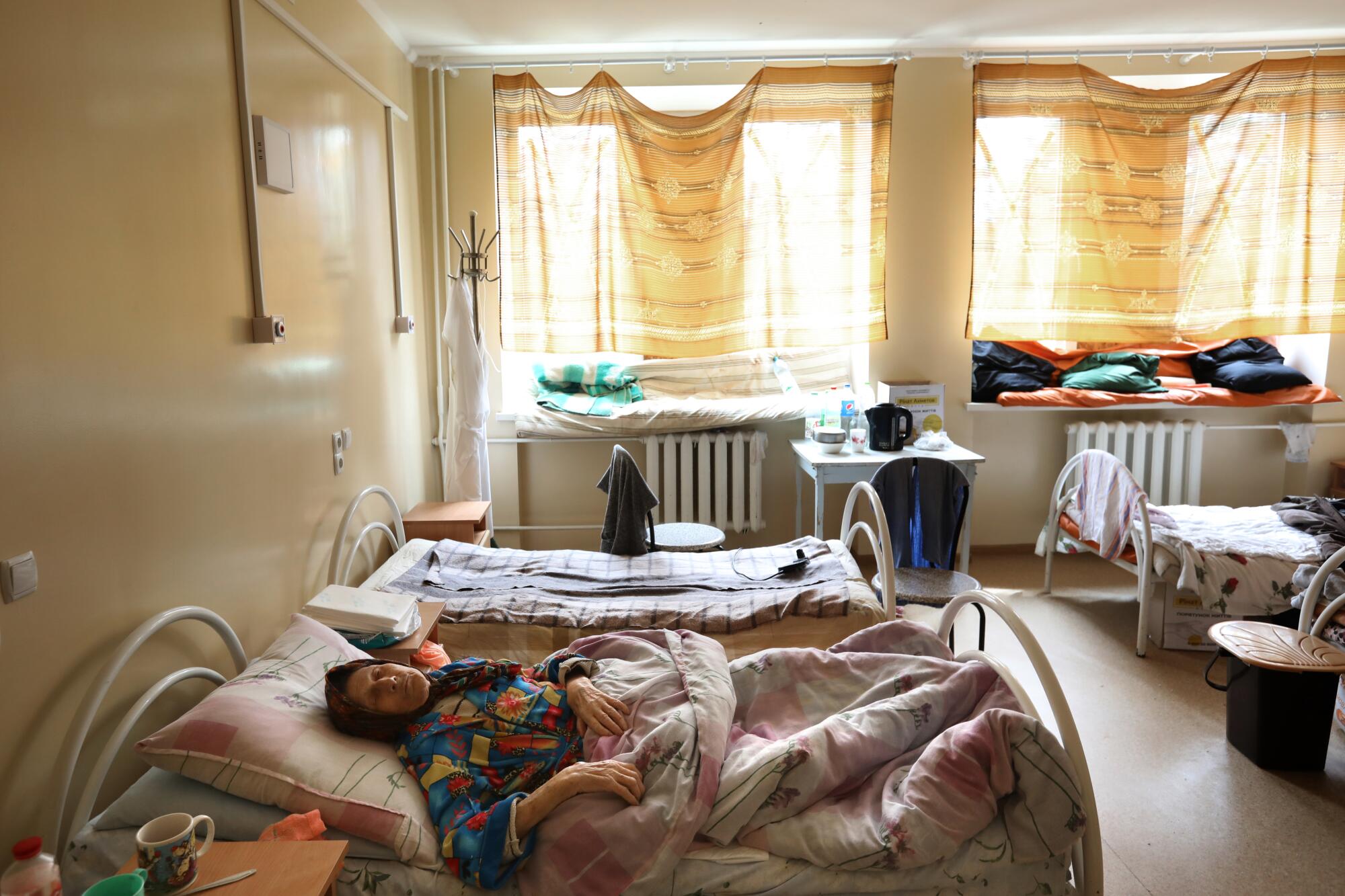
It was easier to talk to Bohdan.
“I am doing the right thing,” he told her. “I am fighting for my country against the aggressor. Everything has improved in my life. Somehow everything was broken before, my financial situation and also my personal life. I’m 41 years old and I have no family, no children. So what am I living for? Here I see a purpose, the country must be defended and developed. I have so many plans. And I want to realize them all when there is peace.”
A few days after their conversation, Severodonetsk fell to the Russians. Yefimkina doesn’t know what happened to Bohdan. Is he among the survivors? Did he escape? Is he a prisoner? She waits, impatiently, to hear his voice again.
Ziener is a special correspondent.
More to Read
Sign up for Essential California
The most important California stories and recommendations in your inbox every morning.
You may occasionally receive promotional content from the Los Angeles Times.









